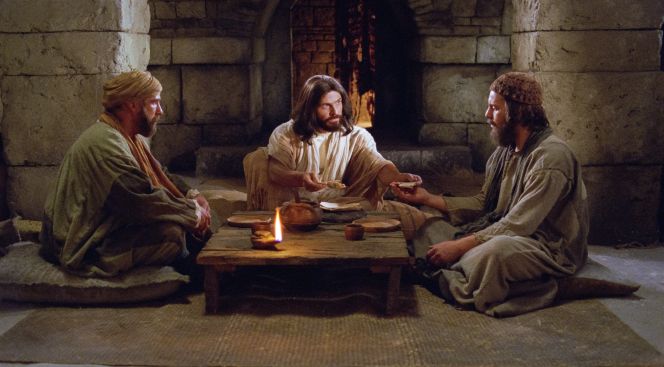Jijo Kandamkulathy, CMF
Claretian Publications, Macau
3RD SUNDAY OF EASTER – YEAR A
The story of the disciples going to Emmaus is one of the most beautiful pages of the Gospels. The text could be narrated very superficially, unless we notice some indices that orient us toward a less superficial reading. How could one not notice, for example, that the sentence “When he was at table with them, he took bread, said the blessing, broke it, and gave it to them” explicitly recalls the celebration of the Eucharist? And, before sitting down at the table, the mysterious traveller also presides over a solemn liturgy of the Word with its three readings (“and beginning with Moses and all the prophets he explained to them in all the Scriptures…” [v. 27]) and his good sermon (“Were not our hearts burning within us when he opened to us the Scriptures…” [v. 32]). In short, Jesus officiated a full-blown liturgy.
The two disciples are sad. They have seen the collapse of their dreams, the failure of their plans. They expected a glorious Messiah, a mighty and triumphant king but found themselves in front of a loser. The rabbis taught that the Messiah would have lived a thousand years; Jesus instead was dead.
This situation of desperation of the Emmaus disciples resembles that of the communities of Luke. They are persecuted, victims of abuse. They see the triumph of the works of death; the wicked have got the better of the pure of heart. They find themselves in the same state of mind as the disciples going to Emmaus. They also stop with sad faces.
It is our story. We, too, find ourselves sometimes in the same state of mind. It happens when we have to admit that cunning prevails over honesty; when we are forced to acknowledge a lie as the official truth, imposed by those in power; when we see the prophets silenced or killed. We stop, sad. How does one get out of this desperate situation?
The Emmaus disciples made misguided responses to the crisis. First of all, they left the community whose members continued to search for an answer to what had happened. They did not verify if the women’s experience could be enlightening to them.
Many Christians were behaving much the same in the time of Luke. In the face of difficulties and persecutions, some abandoned their communities. Others, almost on principle, refused the answers that came from faith. They did not even verify if they could have logic and sense.
The Emmaus disciples did not have the slightest doubt that their ideas about the triumphant Messiah could be wrong. They were stubbornly clinging to tradition, to what they had been taught. They were impervious to the surprises and novelties of God.
Jesus does not abandon the people who choose the roads that lead to sadness. He becomes their companion in the journey.
Abridged from Fr. Fernando Armellini SCJ


 Follow
Follow


